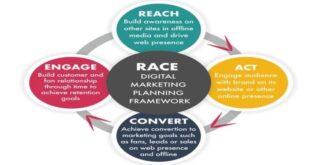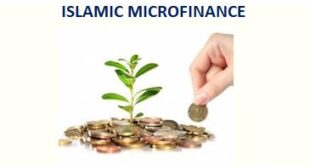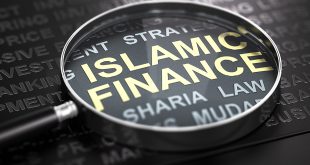Introduction:
 “It is clear that we should be self-sufficient and not rely on debt. That we should live more simply, consume more wisely, think of generations to come, and wonder what desires we want to plant in children’s hearts…..Bringing decency back into debates, normalcy into pay rates (checking greed), and ancient truths into temples is going to take a fight.” At first look, these words appear to be from a long-bearded, fanatic mullah sitting in the Yemeni desert or ‘law-less region’ on Af-Pak border. But these views are expressed in a recent Newsweek column by a young, blonde American journalist/writer Julia Baird. Her message is crisp and clear: the whole world is dying for a change. Not change of names; not change of faces; not change of titles. But change of the present system that the ‘civilized world’ has practiced for about four centuries and is now committed to impose, even by force, on the ‘uncivilized world’!
“It is clear that we should be self-sufficient and not rely on debt. That we should live more simply, consume more wisely, think of generations to come, and wonder what desires we want to plant in children’s hearts…..Bringing decency back into debates, normalcy into pay rates (checking greed), and ancient truths into temples is going to take a fight.” At first look, these words appear to be from a long-bearded, fanatic mullah sitting in the Yemeni desert or ‘law-less region’ on Af-Pak border. But these views are expressed in a recent Newsweek column by a young, blonde American journalist/writer Julia Baird. Her message is crisp and clear: the whole world is dying for a change. Not change of names; not change of faces; not change of titles. But change of the present system that the ‘civilized world’ has practiced for about four centuries and is now committed to impose, even by force, on the ‘uncivilized world’!
The Challenge:
A handful of financial whiz kids, through opaque algorithmic magic, are minting money while hundreds of millions of hard-working, skilled and honest individuals are loosing jobs, further affecting many more millions in their families. In spite of the downturn, in the US the rich are indeed getting richer, according to an analysis of new data by economists Thomas Piketty of the Paris School of Economics and Emmanuel Saez of the University of California, Berkeley. Their report revealed that two-thirds of the US’s total income gains from 2002-07 went to the top 1 per cent of households, with this top tier holding a larger share of income in 2007 than at any time since 1928.
The findings released by the Center on Budget and Policy Priorities show that during those five years the inflation-adjusted income of top 1 percent of households increased more than 10 times faster than the income of the bottom 90 percent of households. Please read once again. It is bottom 90 percent households and not any specific faith group. These households most certainly include Christians, Jews, Hindus, Muslims and followers of other religions. The system is almost equally cruel to all faiths. The last time such a big share of the income gain went to the top 1 percent – and such a small share went to the bottom 90 per cent – was in the 1920s! This proves that depression, recession, contraction etc. are meant to hit ordinary folks only while rich get richer during these economic downturns.
The world has 1,011 billionaires in 2010, up from 793 a year ago, according to the Forbes annual list of the world's richest people released in March 2010. The United States has 403 billionaires, the most in the world. My incredible India – home to the largest humans living under poverty line in the world – has 10 of Asia's top 25 billionaires! China is no different. It has the second highest number of billionaires in the world while urban Chinese earn an average of US$ 1800 and rural Chinese US$ 758 per year only! Wall Street Journal reported in April 2010 that the worldwide sale of super yachts – toys for rich boys – was up in 2009 compared to 2008. The collective wealth of Britain’s 1000 richest people also increased by 30%, the Sunday Times Rich List said. Their combined
wealth rose by more than GBP 77 billion since 2009 to GBP 333.5 billion, the biggest annual rise in the list’s 22 year history.
It is not just daddies (and few mommies) who are hungry for money. Their kids are naturally following their footsteps. The evangelical author Jim Wallis cites a 2006 study, in his new book Rediscovering Values: On Wall Street, Main Street and Your Street. The study found that in 2006, two-thirds more high-school students thought “having lots of money” was “extremely important” than just a generation back said the same in 1976. This rapid descent to the culture of greed i.e. wealth at any cost has brought us to the brink of disaster. Today’s high-school kids are teachers, doctors, lawyers, civil servants, corporate and political leaders of tomorrow. They are our future. What kind of a society will they sculpt, is a critical question that must be addressed forthwith.
The feelings of disgust at this state are not restricted to only 'thinkers'. Even members of showbiz are realizing the gravity of crime prevailing system is facilitating. American comedienne Joan Rivers recently blasted Victoria Beckham, the celebrity wife of soccer star David Beckham saying "I am not a fan of outrageous consumption. I think it is vulgar. No one should flaunt that they have a 100 Hermes 6,000 pound bags. Not when people are starving." Yes, you are right: 6000 pound means approximately Indian Rs 420,000 per handbag. And she is not the only one who has them in hundreds. But the point is that such a criminally extravagant lifestyle is a natural outcome of too much and too easy money that the present system allows a handful of us to earn. At a new year party a couple of months back at a gutkha (chewing tobacco) baron's farmhouse near Delhi, bollywood czar Shah Rukh Khan reportedly charged INR 5 crore for a 30 minute leg shaking appearance. Yes, over one million dollar for a 30 minute dance!
The issue is not that we have less wealth in the society. We have plenty. The problem is its massive concentration in too few and too selfish hands.
Pre-Solution:
History tells us that more or less similar gloom prevailed in the 6th century Arabian Peninsula. Human values were completely absent. Greed and selfishness was at its peak. Among others, two of the seven social sins listed by India’s founding father Gandhi (i) wealth without work and (ii) commerce without morality were particularly present. But one individual changed all this. His name was Muhammad. It is impossible to understand the relevance of Prophet Muhammad (peace and blessings of Allah be upon him and his family) without grasping the basic ideology that he successfully practiced and preached within a short span of less than a quarter of a century, to almost one third of humanity of his time. We need not get into finer details of his religion. That will require a book, at the very least!
Let me use one very recent example to highlight the centerpiece of Muhammad’s ideology i.e. sense of accountability to our Lord on the Day of Judgment for every single deed. This ideological belief is meant to shape our behavior in this world. The print and electronic media is full of stories about a recent cold-blooded murder committed by the-one-and-only rogue state that exists on the planet today. Although the murderers got away from the scene of crime, they left behind an electronic trail of their movement in the country where this heinous crime was committed. And they must be watching wherever they are, as the whole world is, the footprints they left behind. That is it!
If someone had to tell us just about 100 years back that a time would come when every move of ours will be recorded and all matters will be decided on the basis of this hard evidence, we would have never believed. Muhammad said exactly this about 1400 years back that there are video cameras all around us. They are recording every single act of ours. Be watchful of your behavior. Based on this life-long recording, there will be reward or retribution when our lives come to an end.
In the context of economic challenges the world is facing today, let’s pick-up the cornerstones of Muhammad’s philosophy. If practiced sincerely by Muslims first and then aped by non-Muslims, will help make this world a better place. In my view, these are broadly four and they are inter-connected; more so because they originate from the same centerpiece. And these are not based on rocket science that only Harvard or MIT graduates can practice. These are simple, yet difficult, ‘inner engineering’ or behavioral solutions to current economic challenges. They do not require super computers; they only need super determination that motivates us to think of others. The Prophet established the golden principle: "Make it easier, not harder." (Bukhari)
The reason why most of us do not do good is: “what is the point?” And: “no one cares.” Very true; if we take a pedestrian view. However, Muhammad’s followers are supposed to have a deep sense of accountability that there will be a Day of Judgment when all good deeds will be rewarded. On the contrary, there will be retribution for a behavior lacking compassion. This is the centerpiece of Islamic way of life. Without religiously practicing this belief, one cannot be a Muslim.
Cornerstones of economic solution
ZAKAHA tax that is the duty and social obligation of every Muslim. This as the fourth Pillar of Islam More SADAQAH
(Obedience) (Sacrifice)
Accountability
WAQF INHERITANCE
(Generosity) (Compassion)
Muhammad challenged the establishment of his time. Ruling elites – like today’s – attempted to buyout the person who wanted to change the system of exploitation; the system of nepotism; the system of corruption. He was offered all the wealth of his home town Makkah – a thriving city like Dubai or Hong Kong in terms of trade volumes. He
refused. He was threatened and persecuted for 13 long years. He migrated empty-handed, in the dead of night! Declining a ‘lucrative deal’ was possible only due to his strong belief in accountability on the Day of Resurrection.
He laid the foundation of a state in the present Saudi city of Madina, a 3 hour drive from my house. His mission was so simple; so pure and so appealing that the state grew from less than a 100 square kilometer to over a million square kilometer within a decade. Total loss of human life in this expansion of justice-led peace from both his side and his adversaries’ was little over 1000. He knew that political and social justice will remain only dreams in the absence of economic justice. Like a prudent economist, he crafted his economic policy on the basis of four self-sustaining and value-driven cornerstones namely, ZakahA tax that is the duty and social obligation of every Muslim. This as the fourth Pillar of Islam More, Sadaqah, Waqf and Inheritance.
Prophetic Solution I:
The institution of zakahA tax that is the duty and social obligation of every Muslim. This as the fourth Pillar of Islam More is the core of Islamic economic system. It is a micro economic solution to deal with macro economic challenges i.e. unemployment and poverty. ZakahA tax that is the duty and social obligation of every Muslim. This as the fourth Pillar of Islam More literally means purification. When applied on wealth, it is meant to purify our earnings/assets annually. A fixed percentage payoff is mandatory on every Muslim having his/her networth above a certain threshold (which is not very high). ZakahA tax that is the duty and social obligation of every Muslim. This as the fourth Pillar of Islam More is deeply rooted in the Islamic culture despite an economically fragile state of Muslims in general. Prophet Muhammad and his successors used force against affluent Muslims if and when they refused to pay this share of underprivileged and weak in their wealth. Almost all the seven categories of zakahA tax that is the duty and social obligation of every Muslim. This as the fourth Pillar of Islam More recipients are needy and underprivileged.
In Islamic states, the authorities are allowed to force high networth individuals/corporates to pay annual zakahA tax that is the duty and social obligation of every Muslim. This as the fourth Pillar of Islam More. This economic self-help system eliminates utter poverty and starvation leading to a morally and socially healthier society. Wealthy non-Muslims do not pay zakahA tax that is the duty and social obligation of every Muslim. This as the fourth Pillar of Islam More, even in an Islamic state. However, economically weak non-Muslims may receive zakahA tax that is the duty and social obligation of every Muslim. This as the fourth Pillar of Islam More in both Islamic and non-Islamic states.
ZakahA tax that is the duty and social obligation of every Muslim. This as the fourth Pillar of Islam More increases money circulation in the society. It gives purchasing power to those who are unable to generate it on their own. It is important to note that zakahA tax that is the duty and social obligation of every Muslim. This as the fourth Pillar of Islam More is not meant to be used up on consumption alone. The preferred use of zakahA tax that is the duty and social obligation of every Muslim. This as the fourth Pillar of Islam More is to economically empower the recipient so that s/he soon becomes a contributor to rather than remaining a recipient of zakahA tax that is the duty and social obligation of every Muslim. This as the fourth Pillar of Islam More. It is the responsibility of the contributor to ensure that the recipient becomes economically self-reliant. For optimum results, it is better to distribute zakahA tax that is the duty and social obligation of every Muslim. This as the fourth Pillar of Islam More in an institutionalized form rather than individually. For responsibilities like these, a large group of efficient and ethical persons is needed. If there is shortage of such folks, our priority should be to develop human capital from grassroots level. Yes, I mean through top quality schools which produce more ethical and efficient generations than ours. Sitting back and waiting for such people to emerge out of the blue is not an option.
Prophetic Solution II:
Life and death is routine. Every moment, thousands of humans are entering and exiting this world. The second micro economic solution to the present economic challenges relates to timely and fair distribution of inheritance. Unlike zakahA tax that is the duty and social obligation of every Muslim. This as the fourth Pillar of Islam More, there is no minimum threshold of assets for inheritance distribution. Every bit should be shared among the wife, children and other inheritors of the deceased. The Qur’an commands us to divide the smallest of assets (Chapter 4). This is another effective mechanism to discourage concentration of wealth in fewer hands. In reality, the ‘smartest’ or the greediest walks away with all or most of the assets left by the family head. This not only leads to economic deprivation for some, but also results in enormous social and legal costs.
However, religiously sticking to the rule requires love for justice and fair play rather than love for money and pleasure. This is again directly connected to having strong faith on the Day of Judgment when all violators will realize their mistakes. But it will be too late for them to regret. There is a graphical punishment mentioned in Qur’an for those who delay or do not distribute the inheritance as per the detailed guidance of Muhammad.
Prophetic Solution III:
The third solution relates to voluntary (and unlimited charity). This solution is very strongly connected to the Islamic worldview: this world/life is just a transit point. This philosophy dictates our behavior in almost every aspect including economic matters. More than two-thirds of humanity is barely surviving on 1 dollar a day or even less. On the contrary, about 1% super-rich control almost 2/3rd of the global income and wealth. This level of economic disparity is driving some of us nuts. Human beings are usually not greedy. Although the ‘civilized world’ makes us believe that we are inherently greedy. But I can say with certainty that most of us in the ‘uncivilized world’ are not! They are content with a respectable life where most of their needs and few comforts are met with dignity. But when hundreds of millions of dollars (thousands of crores INR) of illegally earned wealth is recovered from serving politicians – the Chief Ministers and Chief Secretaries and IAS and IPS Officers – this is proof enough that our governance system (from which flows the economic system) is rotting and requires a surgical solution.
From start to finish, Prophetic life is an example of selfless and compassionate character. Despite heading a rapidly expanding and increasingly rich state, he did not leave behind fat bank accounts; big chunks of real estate; gold and jewelry; industries or businesses. He lived like a traveler. He gave away whatever wealth came to him. This is one of the reasons why he is fondly remembered as a Prophet of mercy by over 1.5 billion Muslims every day. Non-Muslims admire his simplicity and humility even after 1400 years of his departure from the scene. How many billionaires are remembered with love and respect after they die? On the contrary, most of them are either hated for all the wrong means they used in accumulating their wealth or they are cursed by their own offspring/inheritors for ‘not leaving enough’!
Prophet Muhammad created enormous sense of love for eternal life among his followers. They would go out of the way to spend their rightfully earned money generously on others. He once asked his companions “who among you love his wealth more than the wealth of his inheritors?” Everyone replied, “all of us love our own wealth over our inheritors’”. He said “your wealth is only what you have remitted to the life after death i.e. given away to the poor and needy” (Bukhari). His teachings and his own practice created a society where wealthy competed to keep for themselves as little as possible and give away as much as possible.
Prophetic Solution IV:
Muhammad was acknowledged as Amin (trustworthy) by even his adversaries. In line with Islamic belief, he used all resources at his disposal as a trustee of God and not as an absolute owner. This approach fundamentally shifts the direction of economic affairs. Whatever one ‘owns’ is to be utilized within a framework of rights and obligations; fulfilling one’s own needs, and of the family, as well as fulfilling the rights of other human beings, society, state and humanity.
A hardworking, selfless and honest society always creates surplus wealth. We witness this even among individuals and smaller groups around us. When such a society is not into indulgences of life (buying 6000 pound handbags or spending one million dollar on a 30 minute dance show) then the only way they can use their wealth is by helping less privileged human beings. Islamic history is full of tangible evidences that numerous endowments, schools, hospitals and other social infrastructure were created through waqf i.e. donation of large properties or businesses for general welfare of the society (not just Muslims). Worldwide waqf assets (including in India) are worth tens of billions of dollars. If managed honestly and efficiently as a proper trust, they can generate enough regular income to meet many genuine needs of the society.
Let us bear in mind that these present waqfs are only indicative of our past glory. For a present and future vibrant society, it is essential to persuade our millionaires and billionaires – in the light of statements and practices of Prophet Muhammad – to give away as much as possible before they return empty-handed to their Lord.
Conclusion:
Prophet Muhammad was not a socialist or a communist. He was not against private ownership. Nor was he adverse to profit making. His focus was economic justice. He knew the reality of life that human beings are not equal in talent, energy, skills and knowledge. Some have a right to earn and spend more than others. But earnings must be rightful and spending must be judicious. Muhammad presented a strong, categorical and permanent moral filter for sourcing and using funds. Extravagant lifestyle is not in sync with Islamic values when millions are starving.
The same Prophet who prayed to his God for refuge from poverty, also prayed: "O God, grant me life as a poor man, make me die as a poor man and resurrect me in the company of the poor." His wife asked him why he said that. He replied: “Because (the poor) will enter Paradise (before) the rich.” He continued “Do not turn away a poor man even if all you can give is half a date. If you love the poor and bring them near you, God will bring you near Him on the Day of Resurrection.” (Tirmidhi)
The above economic solutions are purely internal. No demonstrations, agitations or begging for job reservations are required. Through counseling and setting right examples, peace and wider prosperity can still be restored. It is impossible to attract non-Muslims towards Muhammad (peace and blessings of Allah be upon him and his family) and his philosophy, if his own followers are in deep economic mess as a result of ignoring the above principles of Islam.
Post Disclaimer | Support Us
Support Us
The sailanmuslim.com web site entirely supported by individual donors and well wishers. If you regularly visit this site and wish to show your appreciation, or if you wish to see further development of sailanmuslim.com, please donate us
IMPORTANT : All content hosted on sailanmuslim.com is solely for non-commercial purposes and with the permission of original copyright holders. Any other use of the hosted content, such as for financial gain, requires express approval from the copyright owners.
 Sri lanka Muslims Web Portal Sri Lanka Muslims News Center
Sri lanka Muslims Web Portal Sri Lanka Muslims News Center
 Donate
Donate


